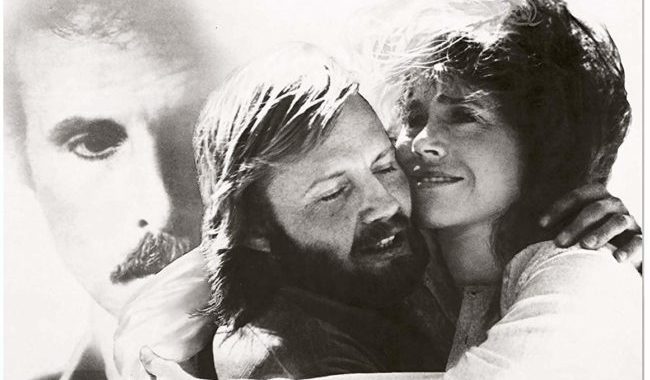
Coming Home (1978) Blu-ray Review

The 1975 siege of the US Embassy in Saigon marked the end of the long protracted Vietnam War, a war that marked post-World War 2 American history and exposed some deep rifts in modern American society, coming at the time of the counter-culture and the Civil Rights Movement. Until well after the war had ended had cinema seriously tackled this conflict, epitomised by the dreadful and unrealistic John Wayne flagwaver, The Green Berets (1968). Of course the Vietnam War, protest and the draft had been in the background to many films, but was rarely the subject of the film itself. Released by Eureka Entertainment this is a nicely packaged and put together release of Hal Ashby’s Coming Home (1977), the first that was to seriously tackle the psychological impact of the war.
Coming Home also has a familiar feel to and makes an interesting comparison with Oliver Stone’s Born on the Fourth July (1989), the film in which Tom Cruise plays well known as the wheelchair bound war veteran Ron Kovic who found prominence as an anti-war protester in the early 1970s. However, unlike the later Vietnam War films, there is no footage or shots in country, of jungles or soldiers marching through paddy fields. Instead it is shown from the perspective of the home domestic front, yet the war is omnipresent. The year the film is set is 1968 at the height of the Vietnam War and with Bruce Dern playing Captain Bob Hyde. He is in Hong Kong with his wife preparing to go in country to Vietnam. He is married to Sally (Jane Fonda), the dutiful wife complete with straight hair and her modern if conservative dress. Together they are the ideal American couple with the man going off to do his patriotic duty for god and country.
Back home Sally, against the wishes of her husband and out of a sense of guilt and wanting to do something volunteers as a helper at a veterans hospital. There she witnesses the combat stress and PTSD of the returned soldiers who have somehow been thrown on the rubbish heap and neglected. One wounded wheelchair bound veteran she comes across is someone she has known for years. Luke Martin (Jon Voight) is very bitter from the injuries he sustained in ‘Nam amd his experiences there. He has grown his hair and beard long, is angry at the world and especially the war. Sally begins a friendship with Luke that the develops into an affair. This comes across as genuinely affectionate and sensual, with Sally even claiming that with Luke she has had her first orgasm. Of course she must also face up to Bob and an uncertain future. At the same Sally too begins to change, perms her hair and develops a more politicised and aware outlook on the world.
It also has to be remembered that Coming Home (1977) pre-dated The Deer Hunter (1978) and Apocalypse Now (1979) and the many other Vietnam War related movies that flooded the market throughtout the late 1970s and 1980s. Although Coming Home was a huge hit and smashed the Oscars, it has more to do with the time now ripe to address the war, it’s horrors and its impact on the American psyche. This cannot be underestimated and it really wasn’t until the Gulf War in 1991 that America really began coming to terms with it.
The film was driven by Fonda herself. Of course she became a pariah in the USA with charges of her being a traitor and labelled Hanoi Jane for spending time with the Viet Cong army, the enemy. Nevertheless, the script, Hal Ashby’s direction and the performances are all first rate and avoids being preachy. There is a beautiful ending to the film [spolier alert] with Voight giving an amazing speech at a college as to the warning of what to expect in Vietnam, while Dern’s character has am ambiguous fate, all beautifully montaged and played to the Tim Buckley song, ‘Once I Was’; Dern pulls off one of the best performances of his career here. When he returns back home he is initially neglectful of his wife and learns of her affair shortly after from the FBI due to Luke’s anti-war activities and confronts him. But this is not an explosions of violence, but instead stairs into space as though there is some kindered bond of their shared experience. With Sally though he becomes brutalised, swears at her and dangerously places a bayonet on his weapon.
The emotional life in Dern’s performance is clearly demonstrated as he is still moved by the experience of being in the film visible on an extra, an archival featurette on the making of the film on the disc. There is also a featurette about the career of Hal Ashby, as well as commentaries by author Scott Harrison and another by Voight, Dern and Haskell Wexler who provided the superb cinematography on the film, which looks stunning on the transfer. Released by Eureka Entertainment in their Masters of Cinema series, this is a nicely put together package.
Chris Hick
